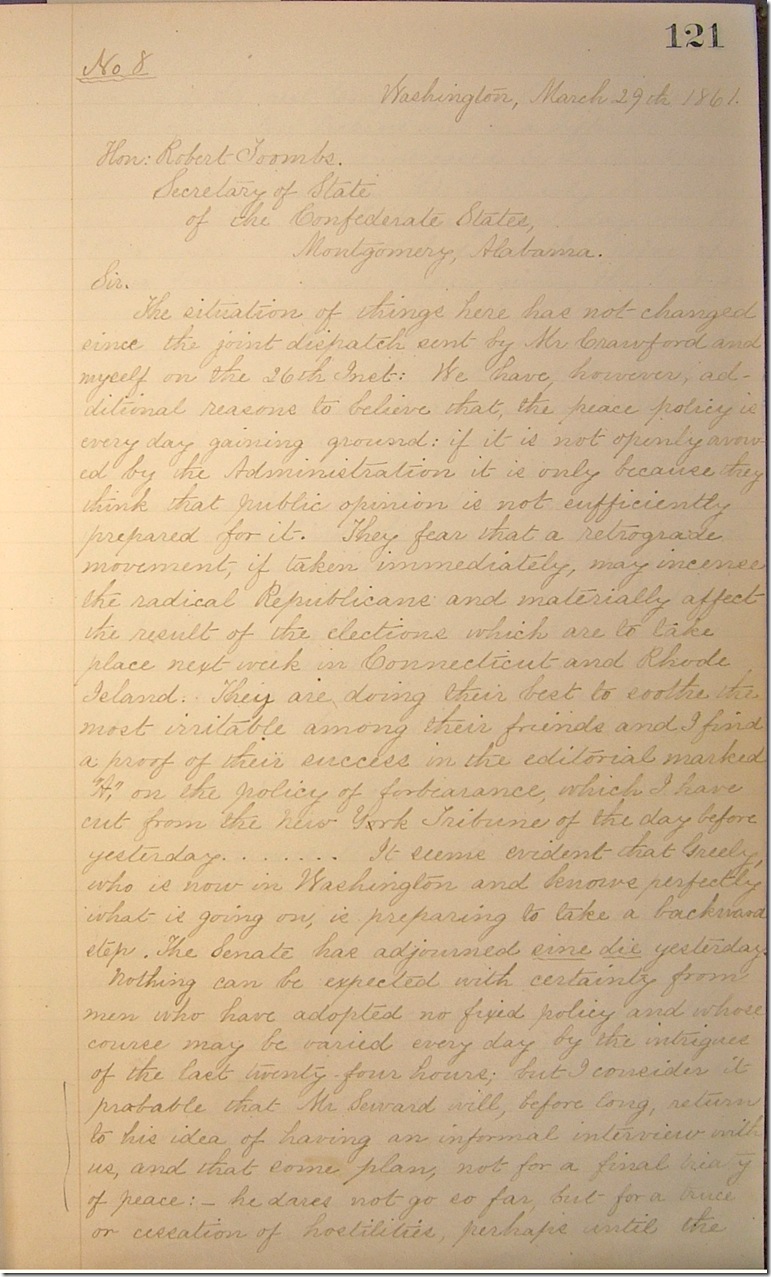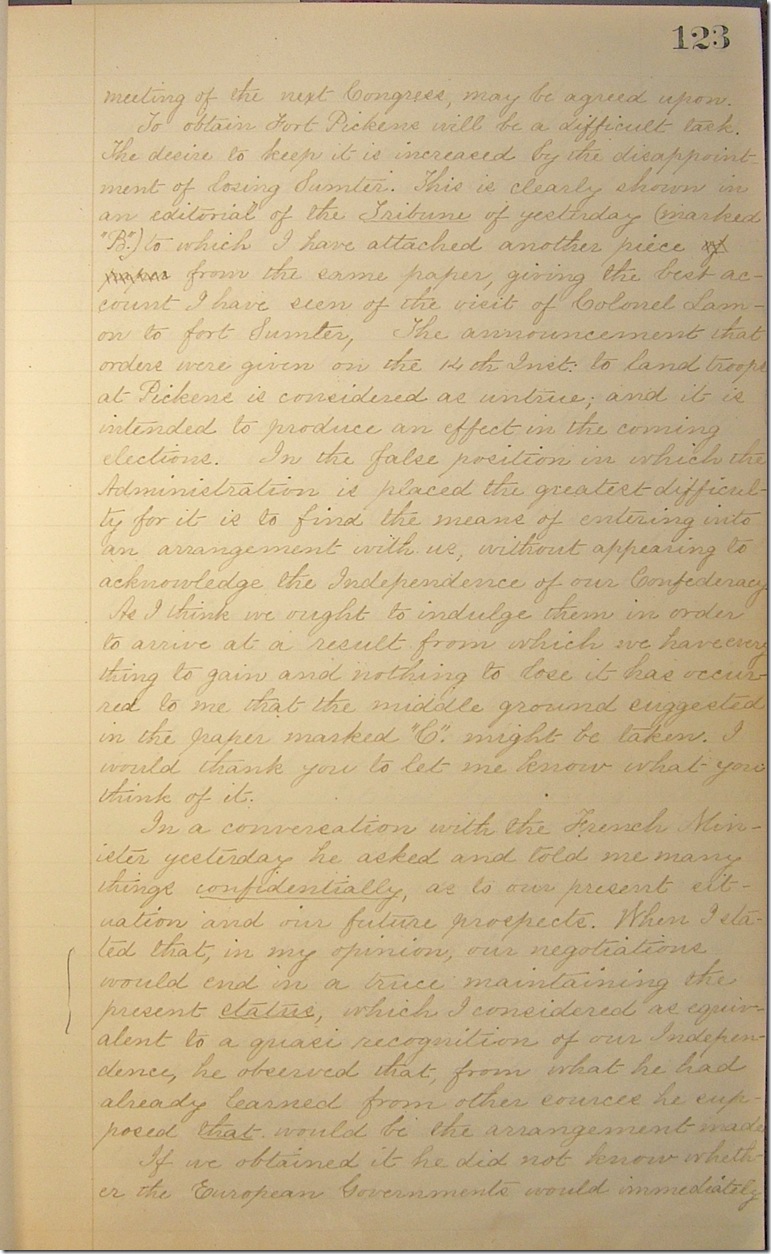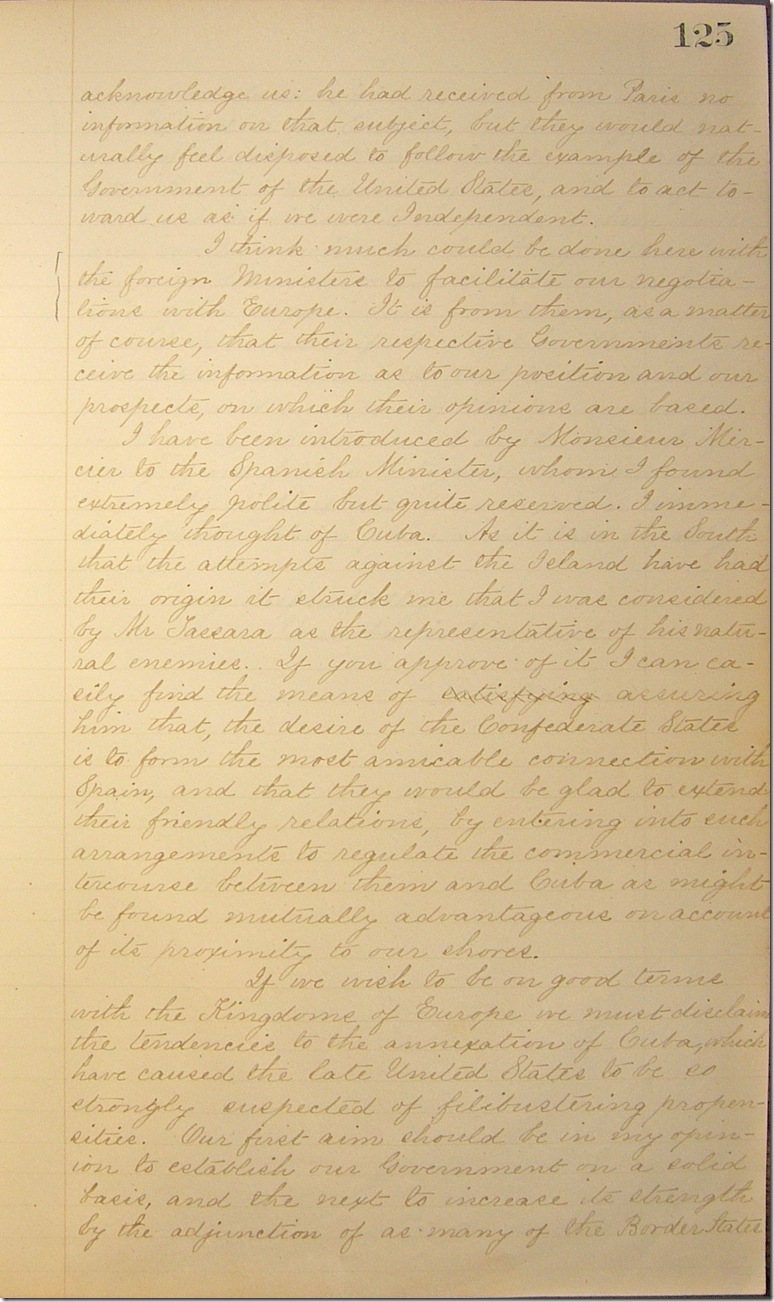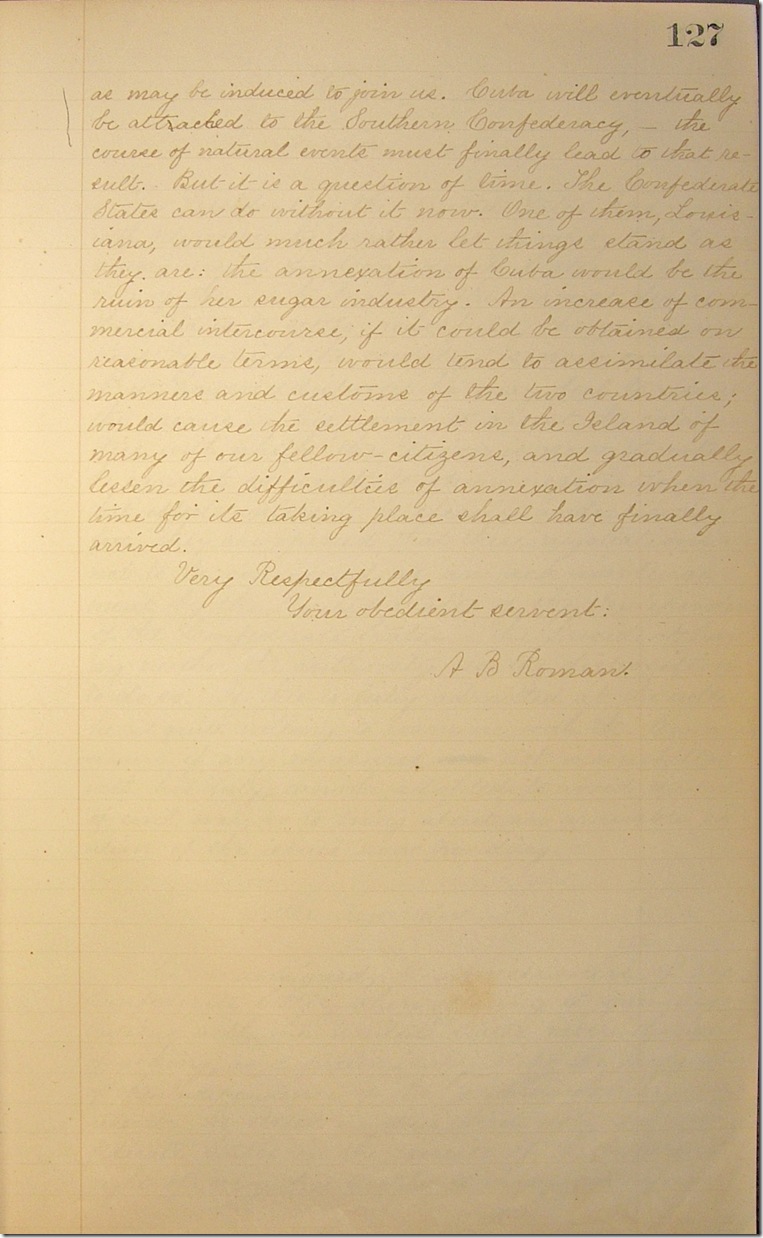During March and April 1861, after seven states had seceded and formed the Confederate States of America but before war broke out, Confederate Secretary of State Robert Toombs appointed Martin J. Crawford, John Forsyth, and A.B. Roman as Commissioners of the Confederate States to Washington, DC. Their purpose was to seek diplomatic recognition from the United States and negotiate peace—at least for a while. Central to the question of peace or war was whether the United States would continue to retain claim over federal forts located in the southern states that had seceded, including Fort Pickens in Florida and Fort Sumter in South Carolina. This item is transcribed from a letter book maintained by J.T. Pickett, secretary to the commissioners, containing copies of 72 letters, dispatches, and telegrams sent and received by the commissioners from the time of their appointment to the demand for the evacuation of Fort Sumter .
Transcript [excerpt]:
No 8
Washington, March 29th 1861
Hon: Robert Toombs.
Secretary of State
of the Confederate States,
Montgomery, Alabama.
Sir,
The situation of things here has not changed since the joint dispatch sent by Mr Crawford and myself on the 26th Inst: We have, however, additional reason to believe that, the peace policy is every day gaining ground: if it is not openly avowed by the Administration it is only because they think that public opinion is not sufficiently prepared for it. They fear that a retrograde movement, if taken immediately, may incense the radical Republicans and materially affect the result of the elections which are to take place next week in Connecticut and Rhode Island. They are doing their best to soothe the most irritable among their friends and I find a proof of their success in the editorial marked “A,” on the policy of forbearance, which I have cut from the New York Tribune of the day before yesterday…….It seems evident that Greely who is now in Washington and knows perfectly what is going on, is preparing to take a backward step. The Senate has adjourned sine die yesterday.
[…]
In a conversation with the French Minister yesterday he asked and told me many things confidentially, as to our present situation and our future prospects. When I stated that, in my opinion, our negotiations would end in a truce maintaining the present status, which I considered as equivalent to a quasi recognition of our Independence, he observed that, from what he had already learned from other sources he supposed that would be the arrangement made.
If we obtained it he did not know whether the European Governments would immediately acknowledge us: he had received from Paris no information on that subject, but they would naturally feel disposed to follow the example of the Government of the United States, and to act toward us as if we were Independent.
I think much could be done here with the foreign Ministers to facilitate our negotiations with Europe. It is from them, as a matter of course, that their respective Governments receive the information as to our position and our prospects, on which their opinions are based.
[…]
Very Respectfully
Your obedient servant:
A B Roman.
Citation:Commissioners of the Confederate States of America to the Government of the United States, letter book.Washington, D.C., Feb 27-April 11, 1861.AMS 811/20



